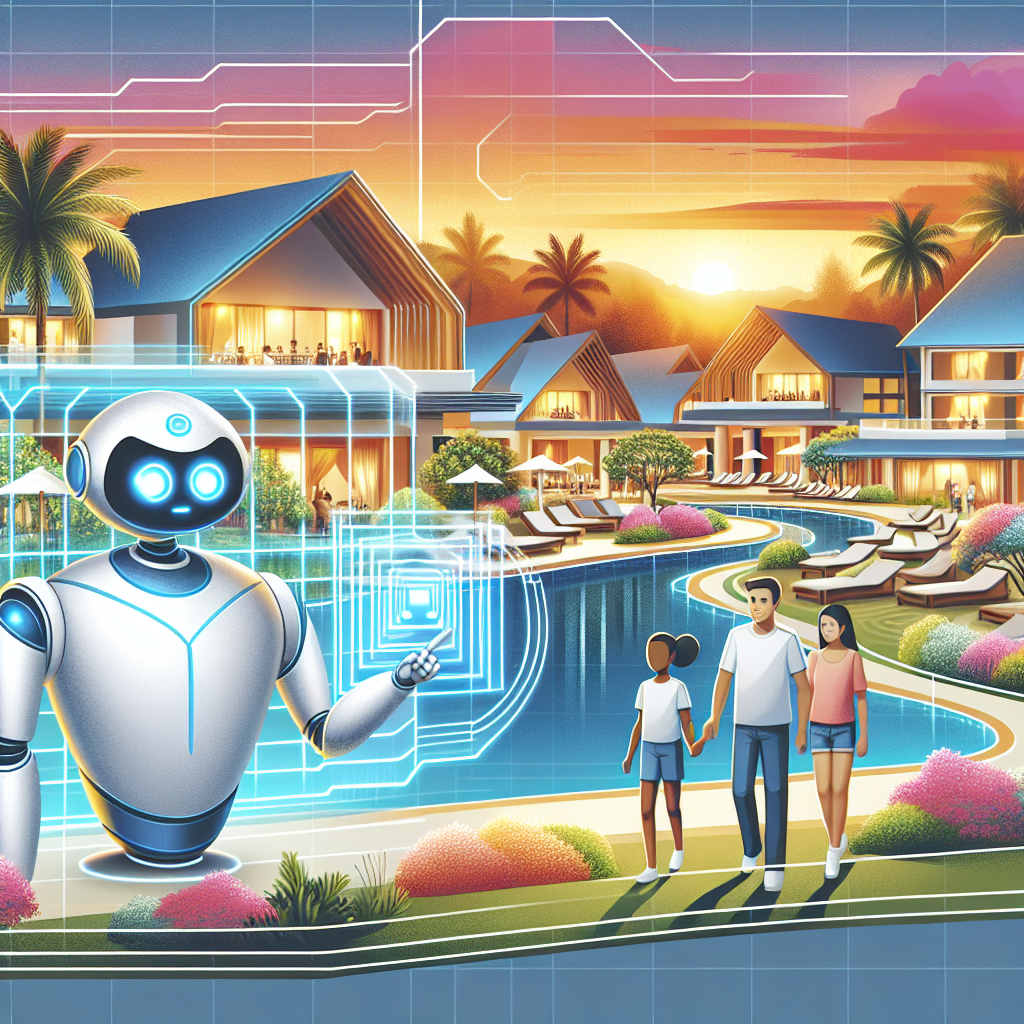In today’s digital age, technology has become an essential tool for businesses, especially in the hospitality industry. With the rise of artificial intelligence (AI) and virtual reality (VR), hotels and resorts are now able to offer immersive experiences to their guests through AI-powered virtual tours. These virtual tours allow potential guests to explore the property from the comfort of their own homes, giving them a realistic preview of what to expect during their stay. In this article, we will discuss the benefits of AI-powered virtual tours for hotels and resorts, and how they can enhance the overall guest experience.
1. Enhanced Guest Experience
One of the main benefits of AI-powered virtual tours for hotels and resorts is that they provide a more immersive and engaging experience for potential guests. By using AI technology, hotels and resorts can create virtual tours that allow guests to explore the property in a 360-degree view, giving them a sense of being physically present at the location. This can help guests make more informed decisions about booking a stay, as they can see the amenities, rooms, and facilities before they arrive.
2. Increased Bookings and Revenue
Virtual tours have been shown to increase bookings and revenue for hotels and resorts. By offering potential guests a realistic preview of the property, they are more likely to book a stay. In fact, studies have shown that properties with virtual tours have a higher conversion rate compared to those without. Virtual tours also allow hotels and resorts to showcase their unique features and amenities, which can help attract more guests and drive revenue.
3. Time and Cost Savings
Virtual tours can also help hotels and resorts save time and money. Instead of conducting in-person tours for every potential guest, properties can simply direct them to the virtual tour on their website. This can help streamline the booking process and reduce the resources needed for on-site tours. Virtual tours can also be updated easily and quickly, allowing properties to showcase any new features or renovations without the need for costly photography or videography.
4. Competitive Advantage
In today’s competitive hospitality industry, hotels and resorts need to differentiate themselves from the competition. By offering AI-powered virtual tours, properties can stand out from the crowd and attract more guests. Virtual tours can help showcase the unique features and amenities of the property, giving potential guests a reason to choose one property over another. This can help hotels and resorts increase their market share and stay ahead of the competition.
5. Improved Customer Satisfaction
Virtual tours can also help improve customer satisfaction for hotels and resorts. By providing potential guests with a realistic preview of the property, they can have a better understanding of what to expect during their stay. This can help manage guest expectations and reduce the likelihood of negative reviews or complaints. Virtual tours can also help guests feel more confident in their booking decision, leading to a more positive overall experience.
Frequently Asked Questions (FAQs)
Q: How do AI-powered virtual tours work?
A: AI-powered virtual tours use artificial intelligence technology to create immersive and interactive experiences for guests. By using 360-degree cameras and AI algorithms, hotels and resorts can create realistic virtual tours that allow guests to explore the property from their computer or mobile device.
Q: Are virtual tours expensive to create?
A: While the initial investment in creating a virtual tour can be costly, the long-term benefits far outweigh the upfront cost. Virtual tours can help increase bookings and revenue, save time and resources, and provide a competitive advantage for hotels and resorts.
Q: Can virtual tours be customized to showcase specific features or amenities?
A: Yes, virtual tours can be customized to highlight specific features or amenities of the property. Hotels and resorts can work with AI technology providers to create a virtual tour that showcases their unique offerings, such as spa services, dining options, or recreational activities.
Q: How can guests access virtual tours?
A: Virtual tours can be accessed through the hotel or resort’s website, social media channels, or booking platforms. Properties can also send virtual tour links to potential guests via email or text message to give them a preview of the property before booking a stay.
Q: Are virtual tours suitable for all types of hotels and resorts?
A: Virtual tours can be beneficial for all types of hotels and resorts, from boutique properties to luxury resorts. Regardless of size or location, virtual tours can help properties showcase their unique features and attract more guests.
In conclusion, AI-powered virtual tours offer a wide range of benefits for hotels and resorts, including enhanced guest experiences, increased bookings and revenue, time and cost savings, competitive advantage, and improved customer satisfaction. By leveraging AI technology to create immersive and interactive experiences, hotels and resorts can stay ahead of the competition and provide guests with a more engaging and informative booking process. Virtual tours are a valuable tool for properties looking to attract more guests and enhance their overall guest experience in the digital age.

